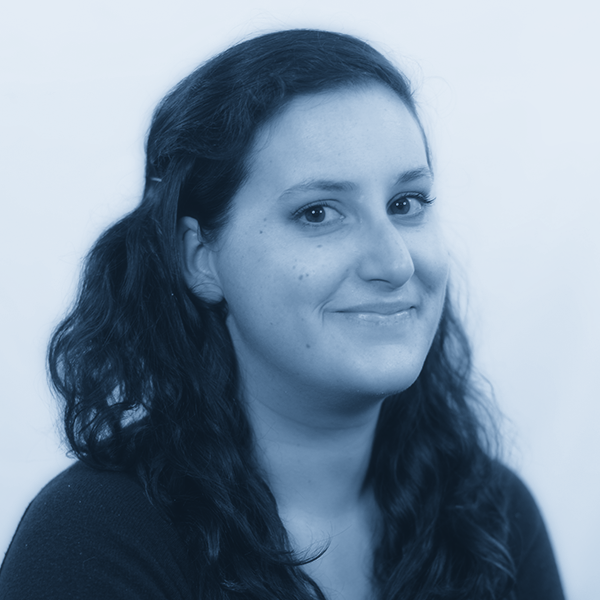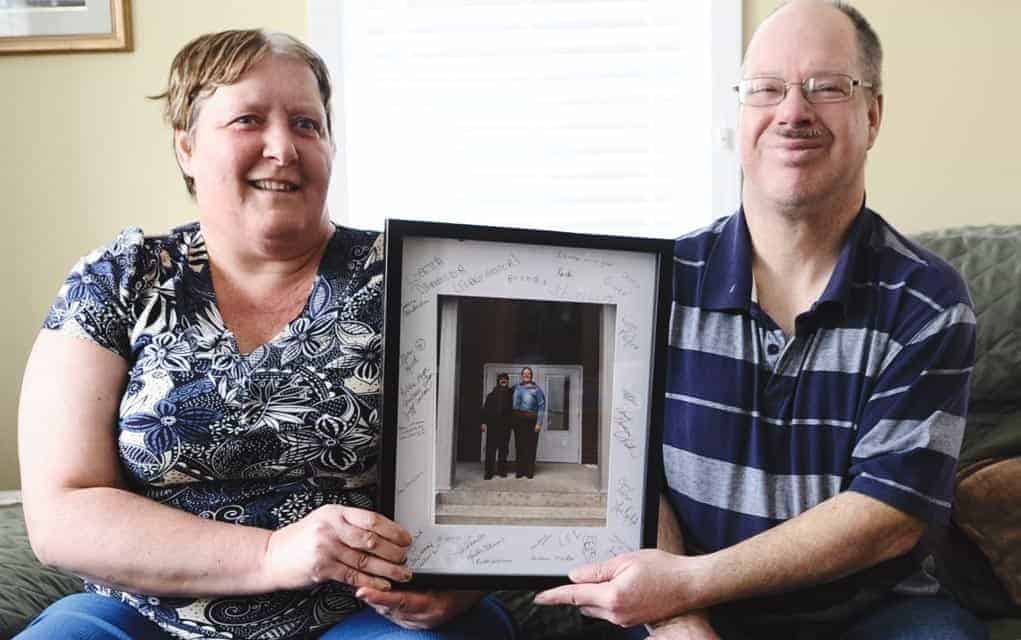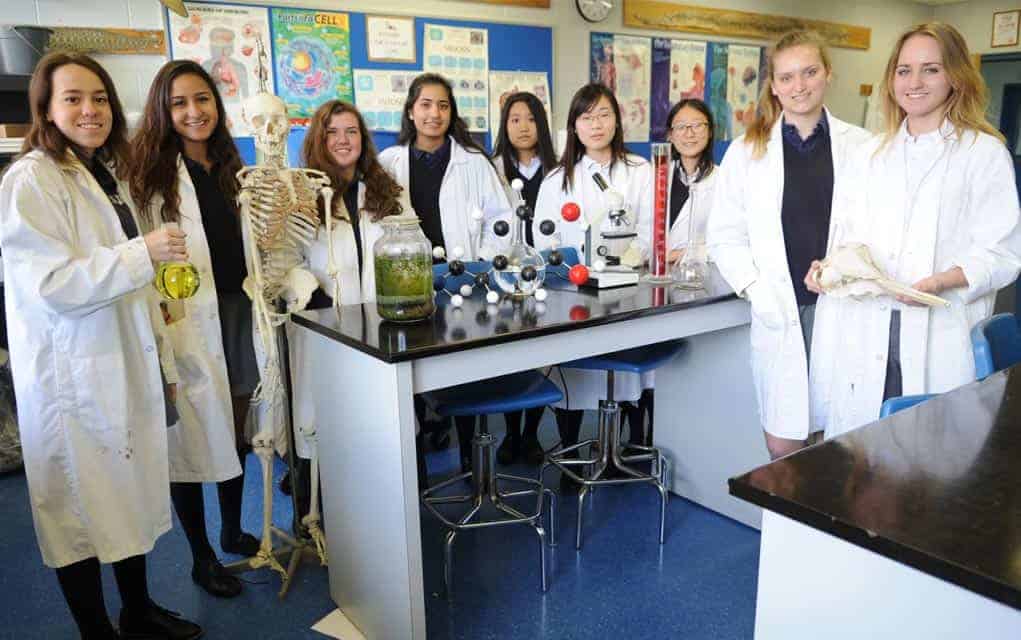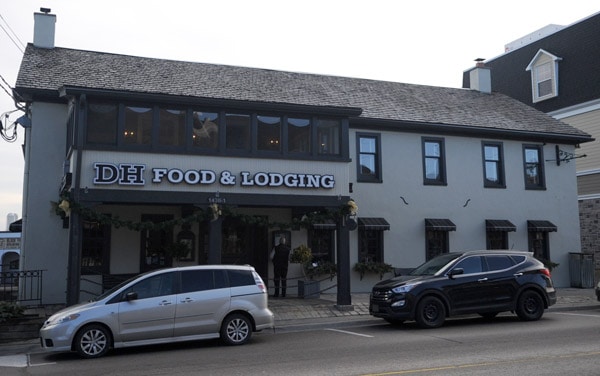Everyone deserves a place to call home.
The Elmira Developmental Support Corporation and Elmira District Community Living are making that a reality with tenants already living in the first of four new co-housing buildings on McGuire Lane in the Lunor subdivision. The second is under construction next door with occupancy expected for November.
Greg Bechard, EDCL executive director and EDSC CEO, explains the support corporation is the not-for-profit charitable organization that operates the housing project, which is titled Field of Dreams. They have a relationship with Elmira District Community Living, but they’re separate boards.
The buildings consist of tenants with intellectual disabilities who don’t need the 24/7 assistance of a group home, along with “good friends and neighbours.” These good friends and neighbours are people just like you and me who live in their separate apartments in the building, but provide an essential social connection to those who are vulnerable to isolation or being taken advantage of.
“What we’re proposing we build is a co-housing community where the people that live there make a loose commitment to share their life with other people. You live privately and separately but you recognize that you live in a broader community and you make a commitment to create community within that housing,” Bechard said.
![Fern and John Bish were among the first tenants for the co-housing project, Field of Dreams, on McGuire Lane in Elmira.[Whitney Neilson / The Observer]](https://www.observerxtra.com/content/images/wp-content/uploads/2016/05/news_edcl_post.jpg)
The name Field of Dreams comes from an agreement struck with the Christian-Weber family in 1973 who donated land to the association. It also plays on the movie of the same name.
“It was kind of an obvious connection. The dream was housing, it was a farmer’s field. So it became the field of dreams. If you’ve ever seen the movie, the catch line in there is ‘if you build it they will come.’ Ours in the fundraising campaign is ‘if we build it will you fund?’”
They’ll be holding information nights later this year for good neighbours and prospective tenants with intellectual disabilities to live in the second building.
The good neighbours aren’t paid staff and aren’t responsible for giving out medication or anything of that sort. In exchange for being good neighbours they get a cheaper rent.
“It’s not like being a staff person and I think a lot of times people when they first imagine it they say, well it’s like being a house parent. It really isn’t. It’s very much you live your life and it’s a spontaneous kind of commitment. And everyone makes a commitment, not just the good neighbour,” Bechard said.
He says it’s ideal for people who are community minded, maybe with a fixed income like a senior, or a young couple who’s trying to put money aside to buy a house.
“There’s community within the building. As you build additional buildings, that community will broaden and it’ll be really interesting to see once the second building goes up how those relationships begin to develop for people between the buildings,” he said.
In the first building already he says they’re seeing not just the intended good neighbour becoming the good neighbour, but everybody being neighbours to one another.
Through the use of technology, good friends and neighbours, and other support mechanisms many people with intellectual disabilities are able to live relatively independent without the need for paid staff.
“It is a more cost-efficient model. You’re only paying for supports that are needed as opposed to 24/7 funded model, whether you need them or not,” Bechard said.
Fundraising is underway to pay for the second building, with a goal of $750,000. It’ll take another $2 million to complete the four-house project. Fundraising includes fundraised dollars and money available for affordable housing through the region to equal that $2 million.
The housing project has caught the eye of people all over the province, the country, and even doctoral students at Wilfrid Laurier University from Taiwan.
“They were heading back to Taiwan and they heard about us. And they came and spent a day with me and toured and went through the conceptual stuff because they were looking at taking some ideas back to Taiwan. This is one that really interested them,” Bechard said.
This type of co-housing helps combat two significant issues for people with intellectual disabilities when they move into the community on their own – loneliness and safety.
Bechard says moving away from family can be isolating, which can make them vulnerable to individuals in the community who may take advantage of them. The good friends and neighbours provide a social safety net, through social connection and ensuring any unsavory type people aren’t coming around.
“Really what we’re trying to create here is a co-housing type of environment where you have your own home, but you share elements of your living with other people by being a good neighbour, maybe helping someone who needs a ride somewhere or somebody who’s not feeling well, to visit, however neighbours help one another,” Bechard said.
Affordable supportive housing for people with intellectual disabilities has been identified by the government of Ontario and people working in the field as a crisis in Ontario. More than 12,000 people with an intellectual disability are looking for housing in Ontario that is affordable and supportive, says Bechard. There’s over a five-year waiting list in the region for affordable housing. When you couple that with supportive housing, it’s even longer.
“As you can imagine because it is a crisis in Ontario, a lot of people are looking for a way to solve the problem in their community. Our theory has kind of travelled by word of mouth.”
They’re hopeful the buildings on McGuire Lane and the one that’s been on Snow Goose since 2010 will help.
The University of Waterloo has a scholarship through their social development studies program which allows two social work students to live at the Snow Goose building and act as good neighbours, while gaining valuable experience. The Snow Goose building was the support corporation’s first experiment with the good neighbours concept. They also have a similar opportunity with Wilfrid Laurier’s Master’s faculty of social work.
“When we built the first building at McGuire one of the graduating students from there moved into McGuire as a good friend and neighbour. She’s been living there now for two years as a neighbour, not as a student. We just had a Master’s student of social work move out, she graduated the end of April and a new Master’s student just moved in the end of May. And the graduating Master’s student has committed to move in to the new building as a good friend and neighbour. You can take from that the experience has been very positive all the way around,” Bechard said.
They’ll be looking for more than just students for good neighbours in the next building.
Robyn Horst is said good neighbour who lived at Snow Goose for two years and now lives in the McGuire building. She encourages other students to look into the scholarship, and those not in school to consider applying to be a good neighbour in the new building.
“I felt like I was learning things at school that I was thinking about at home and I was learning things at home that I would take back to school and talk about and think about or write about in my papers. It was a really rich experience. I enjoyed it so much that I wanted to experience it as just a working adult, not as a student, just as someone living my life,” Horst said.
She says it’s exciting for her to be a part of something so positive and innovative in the community.
“A lot of people want to be engaged in their community and they’re not totally sure how to do that because unless you’re on a committee, or part of a board, or volunteer, or you work in the community sometimes it’s difficult to take that step to start being involved in the community. And being a good friend and neighbour is a fantastic way to do that because it becomes part of your life effortlessly and you’re able to make a positive change,” she said.
And while others might look at a housing project like this and think it puts up barriers, she’s seen the opposite.
“When you look at it closer those barriers actually aren’t there at all. This type of housing arrangement helps to decrease those barriers. Genuine friendships are formed,” Horst said.









